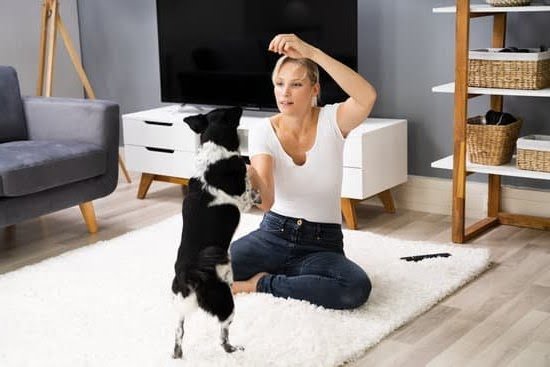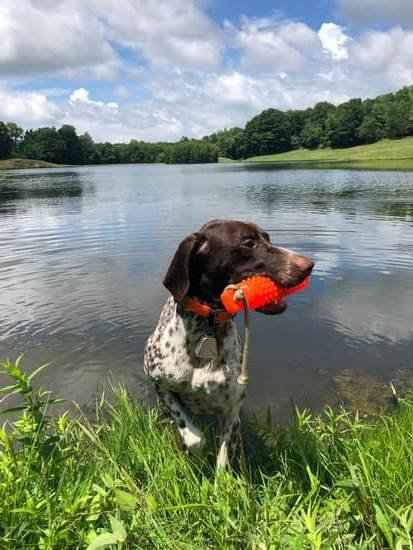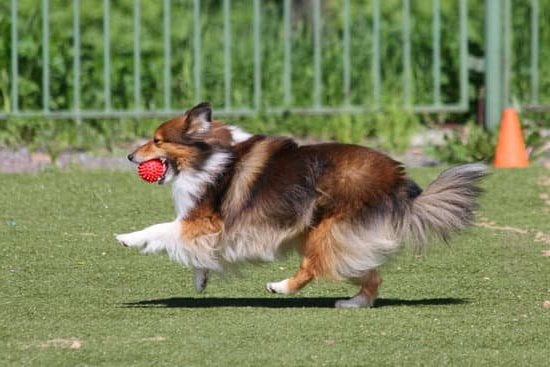Introduction
Can dogs lose their potty training? It’s a valid question that many dog owners have, as potty training and good housebreaking habits can be a challenge to maintain. The simple answer is yes, dogs can lose potty trained if they do not consistently receive reinforcement and appropriate discipline regarding their bathroom areas. This article will provide an overview of the various factors that influence canine behavior and why some dogs may reverse the hard work of months or even years of successful potty training in the house.
Causes of a Dog Losing Potty Training
Yes, dogs can lose potty-trained habits although the process usually isn’t instant. There are a variety of reasons why a dog may start relieving itself indoors again after being previously house-trained. First, a change in routine or environment can trigger it; if your dog’s regular schedule is disrupted, they may be confused and not know when or where it’s appropriate to relieve themselves. Stress or anxiety can have a similar effect; if your pup is having difficulty adjusting to new people or creatures in the home, chances are their bathroom discipline will suffer too. It may also help to remember that dogs sometimes forget commands and do need to be regularly reminded about bathroom etiquette. Additionally, puppies and senior dogs both tend to require more frequent potty breaks due to their age-specific needs and an inability to hold their bladder for longer periods of time. Finally, illness or injury can lead an otherwise potty-trained pooch to revert back to old habits until they are feeling well again.
How Dogs Learn Potty Training Basics
Dogs learn the basics of potty training with positive reinforcement. With repetition, patience, consistency, and praise, you can teach your pup to know when and where it is appropriate to go. Training should begin when your pup is young, so they can quickly adjust to their urine and bowel habits. It will be easier for them to remember and make connections between the words you use and their actions. Consistency is key – stick with a schedule that works for both of you. Make sure there are designated areas in your home where you allow your dog to relieve themselves. If not, they may get mixed signals on where it is acceptable to go potty. Establishing a routine is also important; take them out before bedtime, first thing in the morning, after meals, before walks/playtime, and whenever they display signs that they need to go. Reward the dog when they “do their business” in the right spots with treats or toys; this gives them recognition for doing it correctly.
However, if during the training process your pup has accidents inside or forgets their potty training suddenly—they may simply need more reminders about where it is okay to go as well as extra positive reinforcement for correcting former mistakes. If correcting bad habits has been attempted but failed for an extended period of time (more than 8 weeks), then a visit to see a vet or professional trainer may be advisable as there could be an underlying issue causing this behavior such as physical health problems or another behavioral issue causing them distress which could interfere with the learning process of potty training.
Common Causes of Potty Training Relapse
Excitement and Stress: Dogs often have accidents when they are too excited or stressed. For example, if your dog is happy to see someone and jumps up on them, this might cause him to lose control of his bladder; or if there are a lot of people or animals around, he may become overwhelmed and find it difficult to concentrate on holding it in. Other examples include loud noises that startle your pup or when the routine changes suddenly such as when you stay away from home for an extended period of time.
Schedule Changes: Potty training is all about developing a regular schedule. If there changes in the regular schedule, your pup may have difficulty maintaining potty training. For instance, the sudden introduction of a new pet that disrupts your pup’s routine can lead to confusion and accidents in the house.
Lack Of Positive Reinforcement: Positive reinforcement has long been considered one of the most effective methods for potty training a dog (or any animal!). When you stop giving rewards for doing it correctly and punishing for mistakes, your dog will eventually lose interest in going outdoors because it equates to no reward at all. The regularity of their toilet trips also decreases resulting in more accidents indoors.
Managing Environmental Factors that Lead to Potty Training Setbacks
Yes, it is possible for a dog to lose its potty training. It can happen under certain circumstances. Dogs can become confused by changes in their environment, such as a new house or yard, so they may go back to earlier learned behavior of going wherever and whenever they need to. Often dogs can quickly relearn the rules that were previously taught if owners consistently work with them on potty training.
If there are environmental factors that might lead to setbacks in potty training, like living in an apartment or having a small yard, owners need to plan ahead and be prepared to use solutions such as frequent breaks or potty pads for indoor use. When bringing a puppy into an apartment setting for instance, start off with regular scheduled bathroom breaks until you have got your pup trained up properly. Create designated potty spots both inside and outside and make sure that you clean up immediately after your puppy has gone. Use positive reinforcement with every successful toilet break instead of scolding for accidents. And finally make sure you give your pup plenty of praises when going in the right spot!
Strategies to Re-Train a Dog Who has Lost Potty Training
Yes, dogs can lose potty training, usually due to changes in their environment or routine. This could mean more traffic in the home, moving to a new home, introducing a new pet into the home, etc. Re-training a dog who has lost potty training requires consistency and patience.
1. Designate an area of your home as the designated potty spot using pet-friendly flooring such as puppy pads or grass turf. Show them this area every time you take them out to use the bathroom so they understand which spot is for going to the bathroom.
2. Establish a consistent schedule throughout the day anyway so that your dog knows when it is time to go outside or use its designated potty spot indoors.
3. Make sure your pup gets plenty of mental and physical exercise so this will help with their potty training by releasing some of their extra energy.
4. Make sure you praise them whenever they make progress and be consistent in disciplining if necessary for any accidents that might happen during relearning potty training rules inside and outside of your home.
5. If possible, try keeping track of what times your pup goes potty so you can anticipate when they need to go out while helping reinforce patterns of success at those times throughout the day!
Conclusion
Yes, dogs can lose potty training. Dogs are creatures of habit, and if their potty-training routine is not consistently reinforced, they may start to forget the habits they originally learned. Inconsistent house rules, changes to normal routines, unfamiliar people or objects, fear and stress can all contribute to a dog forgetting their potty-training routine. To ensure consistency and keep your dog’s behavior on track it’s necessary to review and reinforce basic commands such as sit, stay and come frequently.
To properly prevent or retrain your pet if the potty-training has been lost it is realistic to expect accidents for four weeks after reteaching begins. During this period a pet owner should be consistent with their pet’s routine and environment in order for them to remember proper habits that were previously established. Some breeds are more prone to skidding than others when it comes to potty-training; however overall positive reinforcement is always key for successful re-potty training of any canine.
In conclusion properly potty training is essential for happy living whether that includes introducing new pets into the household or reestablishing lost housebreaking habits too much inconsistency within the pet’s lifestyle can lead too confusion which can have an adverse effect on the pet’s behavior. Taking time out of each day while making sure the animal is aware of what is expected from them will promote healthier lifestyles within households with furry members!

Welcome to the blog! I am a professional dog trainer and have been working with dogs for many years. In this blog, I will be discussing various topics related to dog training, including tips, tricks, and advice. I hope you find this information helpful and informative. Thanks for reading!





